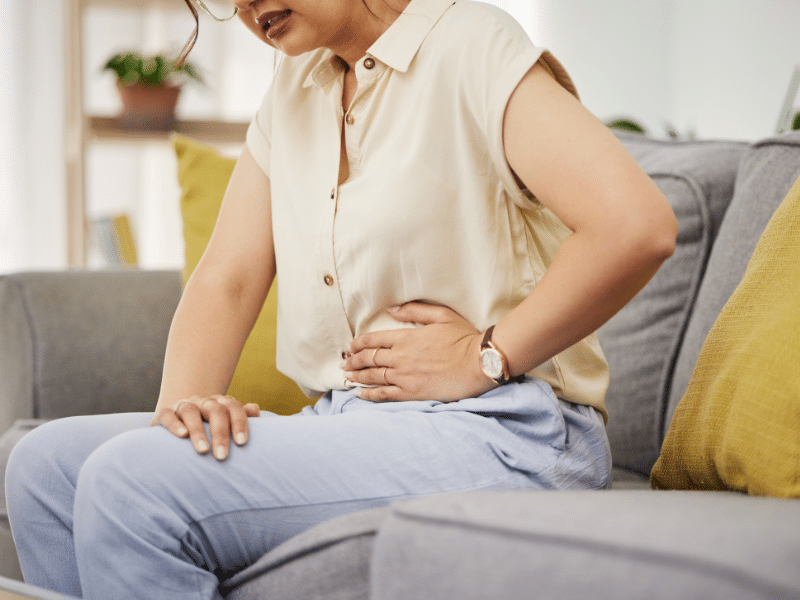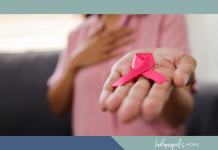 Looking back, I’m still shocked that I didn’t get diagnosed with PCOS until I was 28. Many of the signs were there in plain sight. Sadly, my story isn’t all that new. Many ailments that women discuss with their healthcare teams are downplayed, or we’re told that our symptoms are ‘normal’ and asked to move on.
Looking back, I’m still shocked that I didn’t get diagnosed with PCOS until I was 28. Many of the signs were there in plain sight. Sadly, my story isn’t all that new. Many ailments that women discuss with their healthcare teams are downplayed, or we’re told that our symptoms are ‘normal’ and asked to move on.
It’s unfortunate, but thanks to sites like IMB and social media in general, women can share their stories and journeys navigating through medical care. So many of us are also actively working to destigmatize speaking about bodily functions because what our bodies are doing is natural. We are working to help others understand that gritting our teeth and dealing with intense pain and excessive bleeding is not normal. These symptoms are worth discussing at length with our healthcare providers. We’re also ensuring that our children understand what is normal and what isn’t. We don’t make them think that bleeding so bad that you consistently stain your clothing no matter how often you change your pad is normal. That having an irregular period even though you’re overweight is okay. These and other symptoms that I’ll list below are overlooked by healthcare professionals for years until many of us start trying to get pregnant.
You might be saying to yourself, that cannot be true. Doctors had to have been asking you questions and trying to solve your problems way before you started trying to get pregnant, right?
I really wish I could tell you yes. I wish that I could tell you I felt confident that my previous doctors were actively trying to help me with my issues of irregular periods, heavy, HEAVY periods, inability to lose weight, fatigue that wouldn’t let up, intense sugar cravings, high blood pressure, and pelvic pain, but I can’t.
It wasn’t until my husband, and I tried for six months to get pregnant, and I changed healthcare providers that I finally found a doctor who was looking at me holistically and seeing the root cause of my many issues.
I was 28 and feeling antsy about not being able to get pregnant even though we had been, ahem, enthusiastically been trying for the past six to seven months. I asked on a local Facebook group where I could find a female doctor to help me get pregnant. I walked into my first appointment with her and told her the following:
- I’ve had irregular periods since starting my period at 11 (eleven, y’all, it’s wild!)
- I cannot leave a pad on for more than an hour and a half because I will stain through my clothes on my heaviest days. (I cannot tell you how many underwear were ruined, and forget about trying tampons.)
- Besides two years in high school, where I consistently worked out and watched what I ate like a hawk, I always had trouble keeping weight off. I consistently had a bulge around my waist and craved sweets like nothing else.
- I was tired even after waking up. When I was younger, it was easier for me to wake up and get started, but as I got older, it became harder and harder not to snooze my alarm clock because it was so hard to get and stay awake.
- I had high blood pressure since I was 16, and NOT a single doctor offered suggestions or provided me with medication until I turned 22.
- I could tell that my period was on its way because I would get intense pain around my hips. It was to the point where it made it hard to walk, but like many others, I would power through it.
- I dealt with depression in college. (At this point in time, I also had anxiety, but I didn’t realize it until after giving birth to my daughter.)
I want you to understand that I said all of the above about five minutes after meeting my doctor. The only other things she knew about me was that my pee test was negative for pregnancy, that I was overweight, and that I was desperate to get pregnant. I really want to get you to understand that she knew NOTHING else about me. After I listed all the above, she took a moment and said the following:
“I’m pretty sure you have PCOS, and I’m frankly shocked that no one has mentioned this to you before. The darkened skin around your neck is another sign. I bet if we look at your ovaries, you have some cysts. But I don’t want you to worry or panic. We’re going to work together so you can get pregnant.”
I was shocked. I remember sitting there wanting to scream and cry. My symptoms, many of which I listed to every single doctor I had previously (a total of five, and not to discredit all male doctors because there are good ones out there, but the ones I had were arrogant and dismissive), pointed to PCOS so obviously why hadn’t anyone else mentioned it to me? Why hadn’t any other doctor thought to ask me more questions rather than just ask what kind of birth control I wanted?
“Are you okay?” I looked over at my doctor, who was taking note of my expression, and I smiled at her, half laughing and crying.
“I’m just trying to understand why this never came up before. My previous doctor also knew that I wanted to get pregnant also, and I listed all these things in my new patient documents and discussed it during my first appointment. I even told him that I was worried it would take me longer to get pregnant because of my irregular periods, but he just said to come back in a year.” (Obviously, I didn’t want to wait a year; six months was unbearable.)
She gave me an understanding smile and patted my hand. We went through with the rest of my appointment, and it was confirmed with a sonogram that I had PCOS. She discussed options for the next steps and prescribed me some medication to try and help with insulin resistance.
I stayed with her and her practice for the next five years. She saw me through one ectopic miscarriage that required surgery and two pregnancies where I needed C-sections. She helped me figure out the best approach once I was done having babies so I could better manage my PCOS.
Even though it annoyed me, she explained how important it was for me to stay on a form of birth control even if my husband got a vasectomy. Why? Because allowing my hormones to go back to being erratic would be worse for my long-term health. (I’m not going to lie y’all I double-checked this because, in my post-pregnancy rage, I was convinced my husband paid her to say this simply because he didn’t want to go through a medical procedure. It checks out, but you best believe I remind him that I’ve gone through THREE medical procedures, and he couldn’t do this one.)
Sadly, we moved away from the city where that doctor practiced. I now have my general family doctor manage most of my PCOS symptoms. Thanks to the knowledge that my previous OBGYN gave me, I have a better understanding of how my body works and what I need to do to keep it in the best shape possible.
I’m also so grateful that she took the time to listen to me. To educate me. To remind me that I must stand my ground. No one knows my body better than I do. While I’m done having babies, I’m certainly not done talking about PCOS and how it can affect others.
I don’t hide my diagnosis from others. I make sure to mention it when meeting with new friends who might be starting their pregnancy journies or when I meet someone new. Not to try garnering sympathy or being a weirdo who discusses her health problems, but to try to make the subject less taboo. I want to be able to have open discussions about our mental and physical health. Everything is connected when you consider how a mental or physical disease can disrupt your life. If I can help one person recognize that they may also be struggling with something that can be managed, then I’ll gladly tell others about the nightmare my period in high school was for me and how I always had to carry backup pants.
PCOS made my life harder than it needed to be, and if those who I was entrusting with my medical knowledge took the time to listen to me and try to help me, things could have been so different. I don’t want others to struggle or be told that what they’re experiencing is normal.
If any of the symptoms I mentioned resonate with you, please take the time to speak to your doctor and ensure they hear you. They should discuss how they can prove you either do or do not have PCOS, whether with blood work or a sonogram. Remember that PCOS can look different for everyone because our bodies are built differently, but the bottom line is the same. If you do not feel like something is right, say something.
If you’ve been diagnosed with PCOS, I hope you feel comfortable sharing your story with me. I’d love to learn more about how others have been diagnosed and if more folks are getting diagnosed at a younger age. I’m raising two daughters, and while they are still very young, I will make sure I speak to them about what to look out for.








